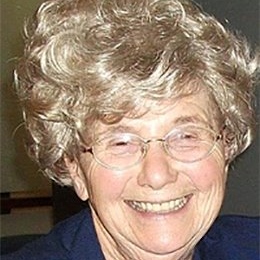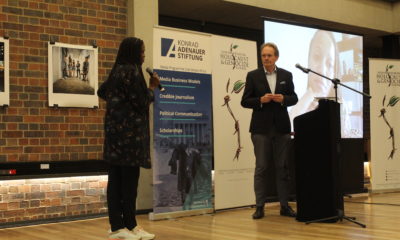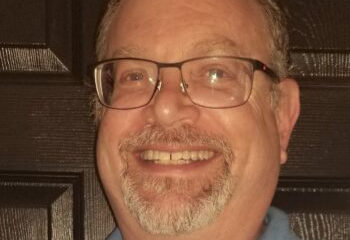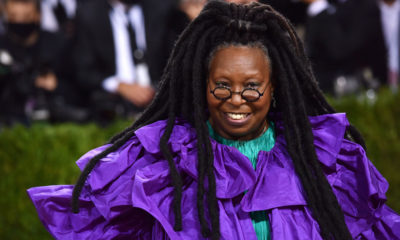
Featured Item

Should Black Lives Matter to Jews?
The Black Lives Matter (BLM) movement, founded to protest police discrimination against black people in the United States (US) in 2012, hit the headlines this year after the police killing of George Floyd in Chicago went viral on social media.
While most American Jews oppose racism and police brutality and hence support the sentiments of BLM, they have found it difficult to support the BLM movement itself as its leadership is overtly antisemitic and implacably opposed to Israel.
So said Dovid Efune, the editor-in-chief of The Algemeiner Jewish news site in the US. He was speaking in a Zoom panel discussion on Monday night hosted by Sydenham Shul on the subject of Israel, the Jews, and BLM.
Rebbetzin Ann Harris, barrister, activist, and the widow of the late Chief Rabbi Cyril Harris, said when her husband would speak about being good Jews or supporting Israel in shuls across the country, congregants nodded. “When he spoke about doing something for their fellow South African citizens, it didn’t go down so well. He joked that they turned off their hearing aids. Perhaps we didn’t try hard enough to change the attitudes of the Jewish community on [race] issues.”
Harris recognised that many individual Jews fought apartheid, but communal efforts were wanting. “He firmly believed Judaism wasn’t just for inside the shul; it was a code of morals and ethics, as he wrote in his book Jewish Obligation to the Non-Jew.”
“Where do American Jews stand on BLM?” Efune asked. “There has been support, outreach, and solidarity with the black community, and many Jews have joined protest marches. But the BLM movement – the organisation and platform itself – has been both antisemitic and opposed to Israel. They call Israel an apartheid state perpetrating a genocide on the Palestinians. They tie the injustices black people experience in the US to the alleged injustices faced by the Palestinians. This makes it problematic for most American Jews to support it.”
Efune recalled how in 1965, Rabbi Avraham Joshua Heschel marched for civil rights with a Sefer Torah, together with Dr Martin Luther King Jr in Selma, Alabama. Heschel believed that everyone was created in the image of G-d, and had the right to be treated equally.
However, for years, demagogues like Louis Farrakhan, the leader of the Nation of Islam, have spewed vile antisemitism. On 4 July, Farrakhan delivered an antisemitic diatribe, referring to the “Synagogue of Satan”, and calling Jews “termites”. Efune described the battle on Twitter between celebrity supporters of Farrakhan’s views (with 73 million followers collectively) and those opposed to them. He cited Nick Cannon (host of America’s Got Talent) who at first endorsed the antisemitism, but after being castigated, was contrite and undertook to learn more about the issue. “We should be accepting of his teshuva [repentance]. It shows that deep ignorance can be overcome.”
Olga Meshoe Washington also joined from the US. She is chief executive of Defend, Embrace, Invest (in) and Support Israel International (DEISI), and is a strong African, Christian Zionist. Her father is Reverend Kenneth Meshoe, the leader of the African Christian Democratic Party. “Farrakhan fills an ideological void” for some black people, she said, but his bigotry towards Jews and Israel must be opposed.
“Africans have a great affinity with Israel. We sing songs about Zion in church, and know our scriptures. Jews and Africans are bound by a history of sorrow and oppression. But I realised that praying for Israel wasn’t enough. I needed to speak up for Israel. People need to be educated about the issues. For post-colonial Africa, one of their main friends was a tiny little country called Israel,” Meshoe Washington said. “It sought to empower African states.”
Turning closer to home, Benji Shulman, the director of public policy at the South African Zionist Federation, emphasised that South Africa has one of the lowest rates of antisemitism in the world. “What we have in a year, France has in a month.”
He also pointed out that in South Africa, antisemitism manifests among elites – at universities, in political parties and trade unions, and in the media. The general population has been shown to be indifferent. Citing a study by the Kaplan Centre for Jewish Studies, 72% of black people surveyed didn’t know there was an Israeli-Palestinian conflict; only 4% had heard of BDS (the Boycott, Divestment, Sanctions movement), and only 2% had heard of pro-Israel organisations.
He said that, generally speaking, South Africans aren’t racists. “The danger is that the racialised nature of wealth and poverty will get worse with our stagnant economy.”
About 10 years ago, the South African Friends of Israel (SAFI) was created to connect with Christians who had an interest in supporting Israel. “SAFI was one of the few organisations prepared to defend Chief Justice Mogoeng Mogoeng’s right to speak up for Israel,” Shulman said.
Shulman suggested three practical ways to improve relations between black people and Jews in South Africa. First, build bridges, not walls. Create opportunities for people to become educated and skilled. “You want a relationship where they can come to your defence when the chips are down.”
Second, watch the loshen hora. Jews need to be confronted when they use pejorative language to describe other human beings. Third, get involved. There are many opportunities to follow the lead of other Jews who are really making a difference in all spheres of this country. “And if you can’t do it, please pay for someone else to!”










